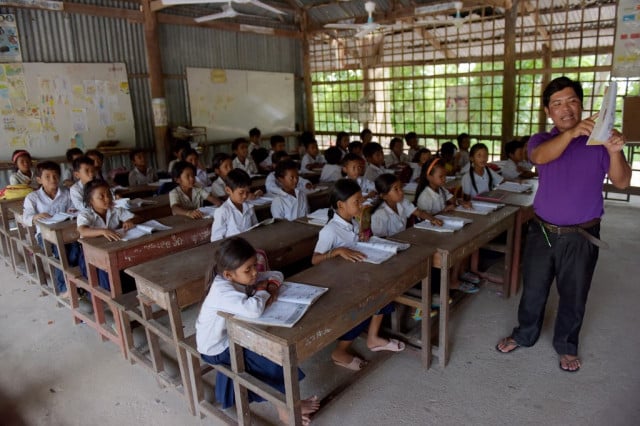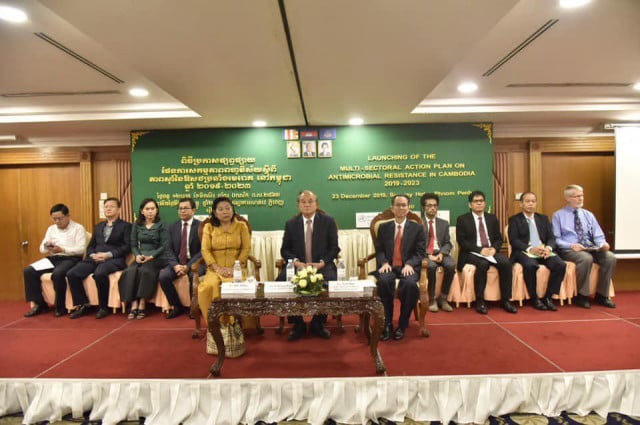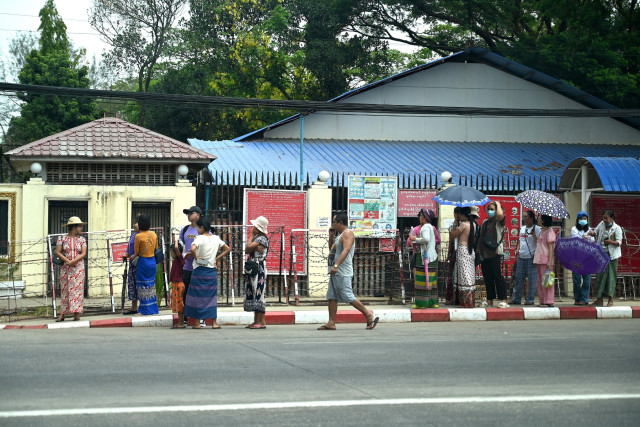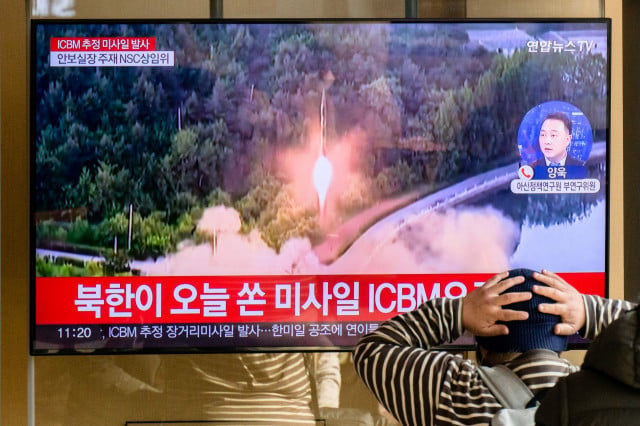The French Language Says “Au Revoir” to Cambodian Market

- Lim Tola
- March 8, 2020 6:15 AM
PHNOM PENH--For a little less than a century, specifically from 1863 to 1953, the Kingdom of Cambodia was directly under the protectorate of the French Empire and one of the many far-flung colonial nations of the European superpowers in the Far East.
During and after the time of the French Protectorate in French Indochina up until the early 1990s, the French language was a way of life, a language that provoked a sense of intellectual thinking and lifestyle commonly associated with the elite classes of a society.
But then, the beginning of the new millennium brought some worries as to the survival of the French language in this former colonial land of France.
Many of Cambodia’s elderly leaders master French, and this language still cast impactful influence up until the 1990s, regardless of its formal or informal uses. Toward the end of the 1990s, the French language started to decline in usage among Cambodians.
In addition, the older human resources who spoke French fluently started to pass away one by one due to natural causes.
How did this decline in usage happened? What factors led to the French language being in this situation?
There are several reasons as to why the French language became less and less popular among new learners in the country and, without the intervention of French-speaking society, this language might one day entirely fade from public usage.
The first reason is the small number of French-language schools in Cambodia.
Second, French-language schools tend to charge higher fees than average English-language schools.
Third, globalization and the integration of Cambodia among regional nations, such as ASEAN—the Association of Southeast Asian Nations formally uses English for communication.
To further worsen the situation of the French language, four out of the 10 ASEAN nations, that is, Singapore, the Philippines, Malaysia and Brunei Darussalam, prefer using English most of the time.
Cambodia, Laos and Vietnam are the only ASEAN members to be registered among the 50 or so Francophone countries in the world. Even though this may be the case, few people in these three countries actually speak French on the daily basis.
The fourth reason is the introduction of other popular languages such as English, Chinese, Korean or even Thai.
Flashback to the 1980s: Learning Russian and Vietnamese languages were encouraged by the state. In the 1990s, the teaching of English and French languages was allowed both in the government educational system and private schools.
The fifth reason is the flow of external and foreign economic investments. Many investors use English or Chinese as the usual way to communicate in business. In some cases, French people must switch to using English in their businesses.
The sixth reason is the growing psychological influence of the Anglophone countries in term of politics, culture and economy that, along with the shrinking number of French schools and their high fees, have nearly driven the French language out of use in Cambodia.
More than 90 percent of Cambodian youths who are millennials or Generation Z prefer English or Chinese as their second or third language. Previously, it was the combination of English and French on which most people were focusing on studying. However, today, the duo has become English and Chinese.
In response to this global trend, some French speakers have had to consider taking up English in order to catch up with the flow of communication both at the national and international levels.
A certain number of French companies in Cambodia have hired English-speaking employees rather than French-speaking ones in order to facilitate access to the English-speaking workforce.
Medical prescriptions were once mainly written in French. They are now mostly done in English.
Regarding the decline of French-language usage in Cambodia, Prime Minister Hun Sen said that this situation was partially due to the French government’s lack of awareness of the country during the 1980s.
In the meantime, the global trend has been making English a language internationally recognized. “Even French leaders speak English these days,” Hun Sen said.
“There are less French-language learners than Chinese learners. French language has to expand its influence…[which] is somehow shrinking in Cambodia.” To summarize, the French language still retains some meaning for Cambodians. However, its value and influence are fading away and it may someday disappear.
Goodbye, French language!















